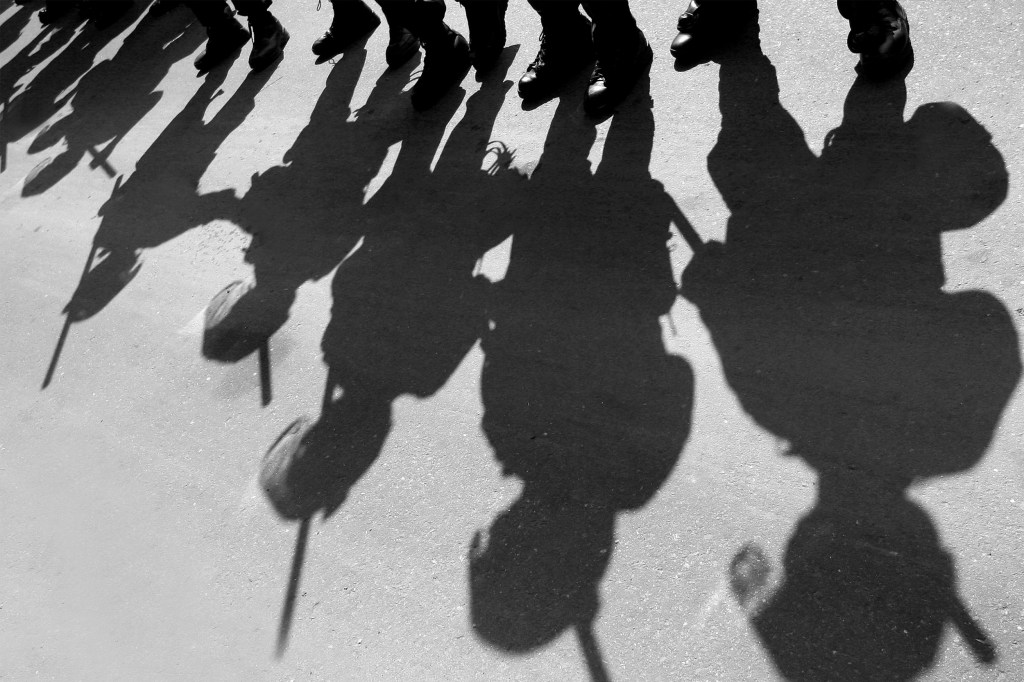The Quest for Racial Justice
Stories containing Harvard insights and coverage of the movement against systemic racism in America
-
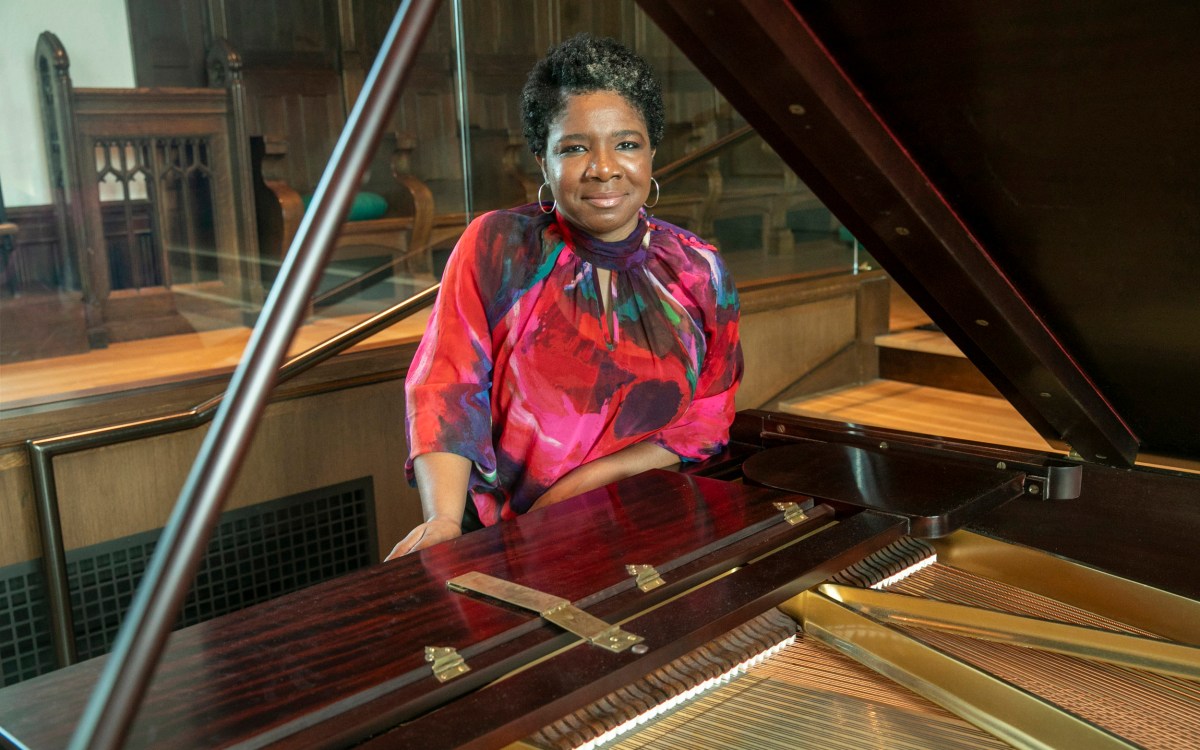 Arts & Culture
Arts & CultureHow music powers protest
The struggle for racial justice has always had a soundtrack. Charrise Barron explores its evolution from gospel to hip-hop.
-
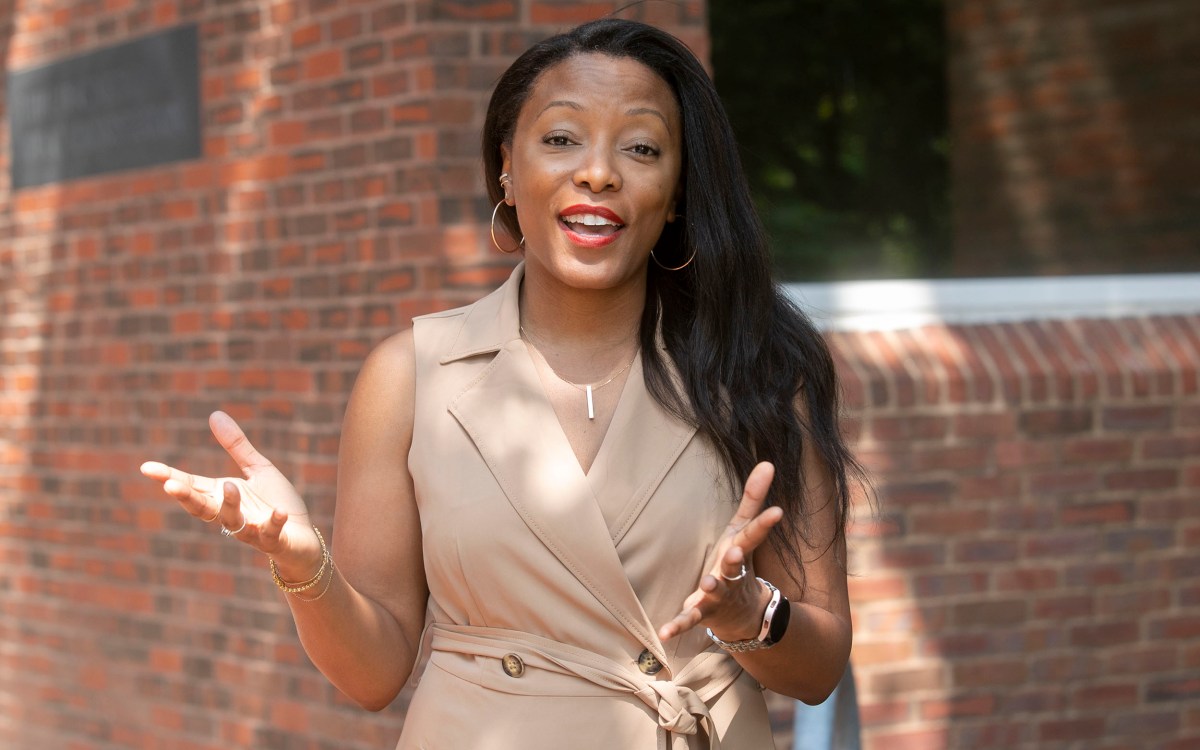 Nation
NationWhen mixed-race couples talk about race
New study finds duration of relationship affects comfort level of Black women in discussing topic with white male partners.
-
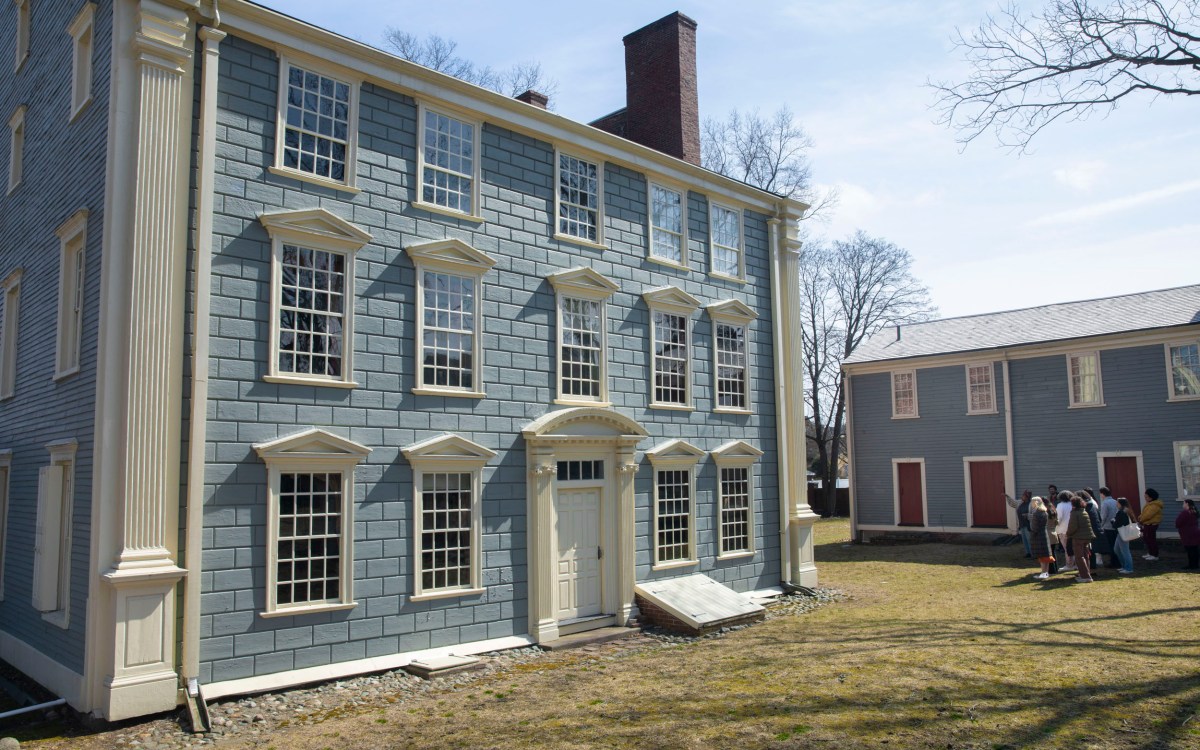 Campus & Community
Campus & CommunitySaying their names, remembering their lives
Harvard strengthens research, educational ties with Royall House and Slave Quarters in Medford.
-
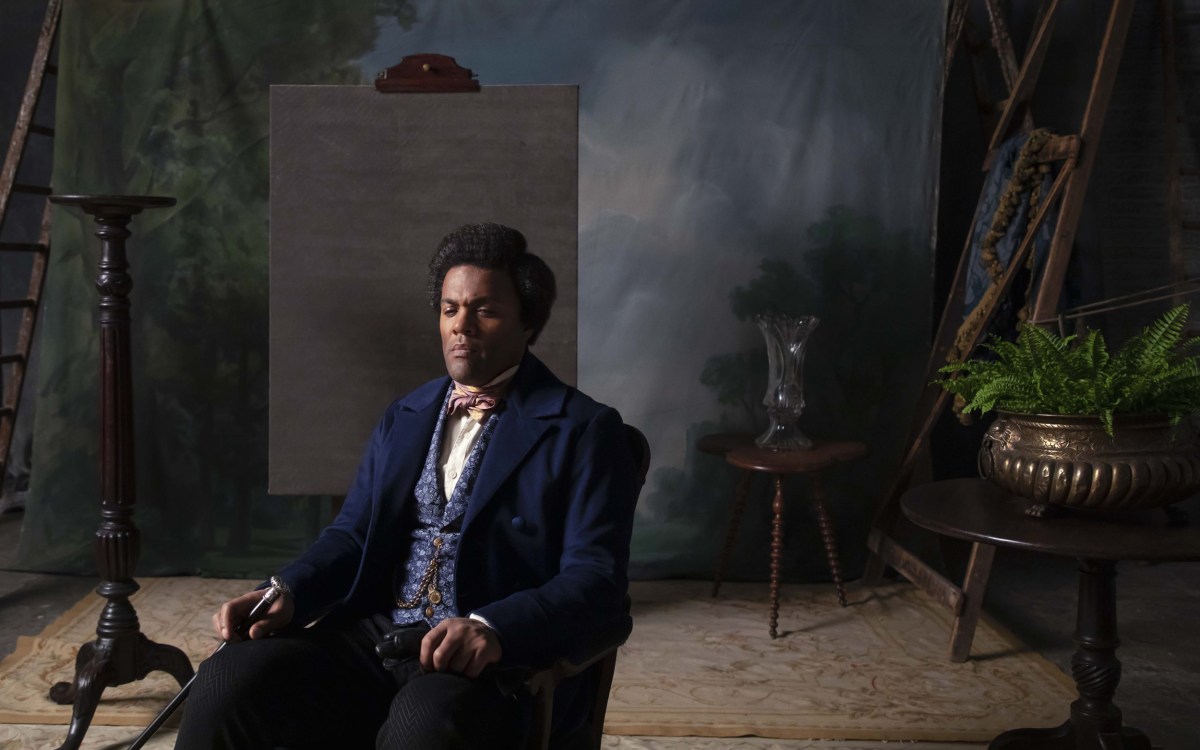 Arts & Culture
Arts & CultureFrederick Douglass as 19th-century influencer
A Wadsworth Atheneum show, curated by Sarah Elizabeth Lewis and Skip Gates, explores Douglass’ embrace of the emerging art of photography.
-
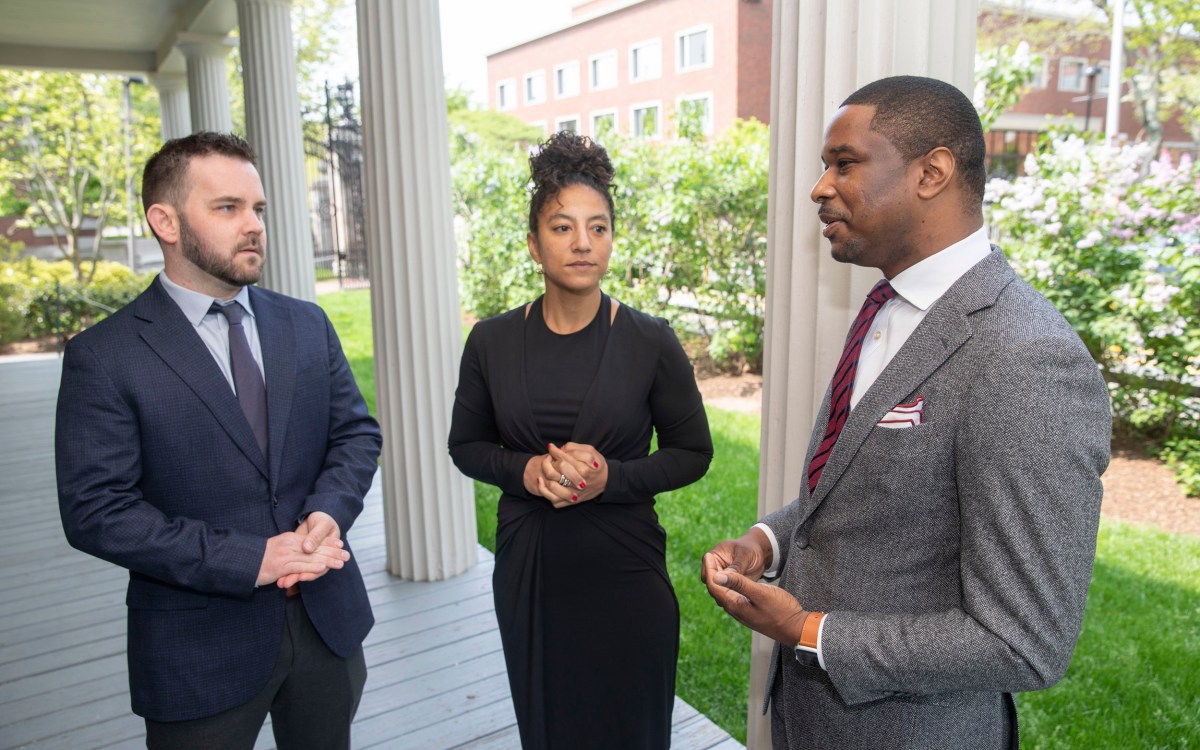 Nation
NationCOVID prison releases expose key driver of racial inequity
As the incarcerated population dropped overall, the proportion of Black prisoners rose. Researchers point to unequal sentencing.
-
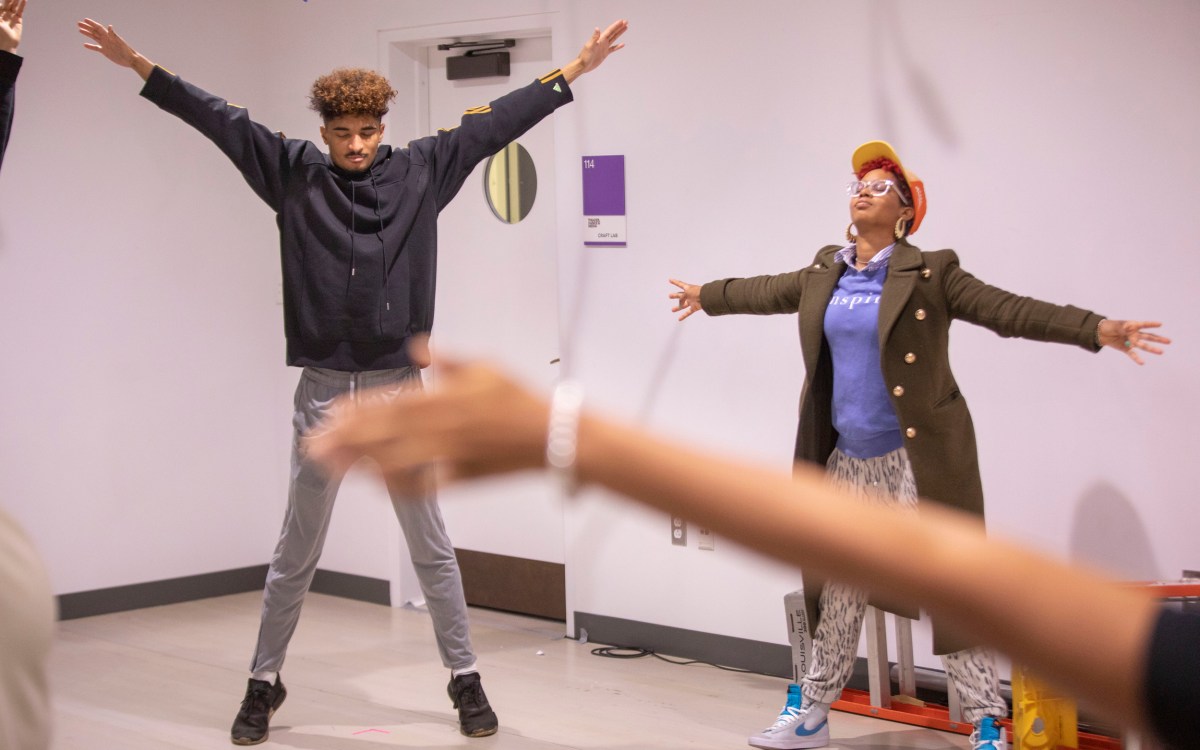 Campus & Community
Campus & CommunityTransforming breath to activism
Theater, Dance & Media course, rooting in issues surrounding death of Eric Garner, blends ritual, meditation, reading, “radical dialogue.”
-
Dissecting racial disparities in Mass. criminal justice system
Brook Hopkins and Felix Owusu are two of the authors on a report on racial disparities in Massachusetts state prisons
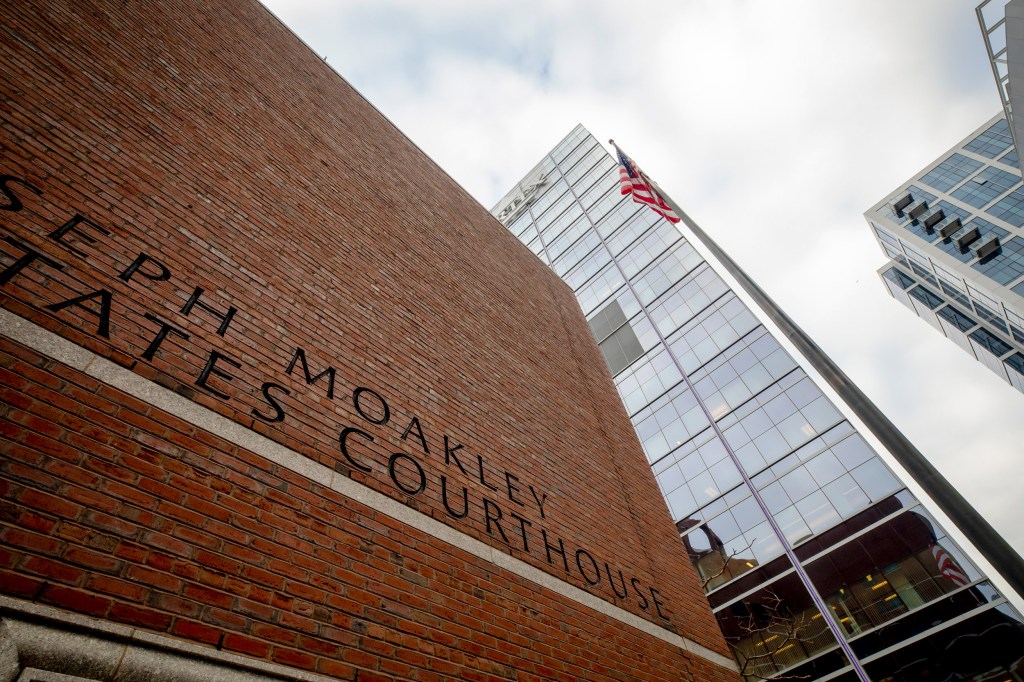
-
How textbooks taught white supremacy
We interview historian Donald Yacovone, an associate at The Hutchins Center for African & African American Research, who is writing the book “Teaching White Supremacy: The Textbook Battle Over Race in American History.”
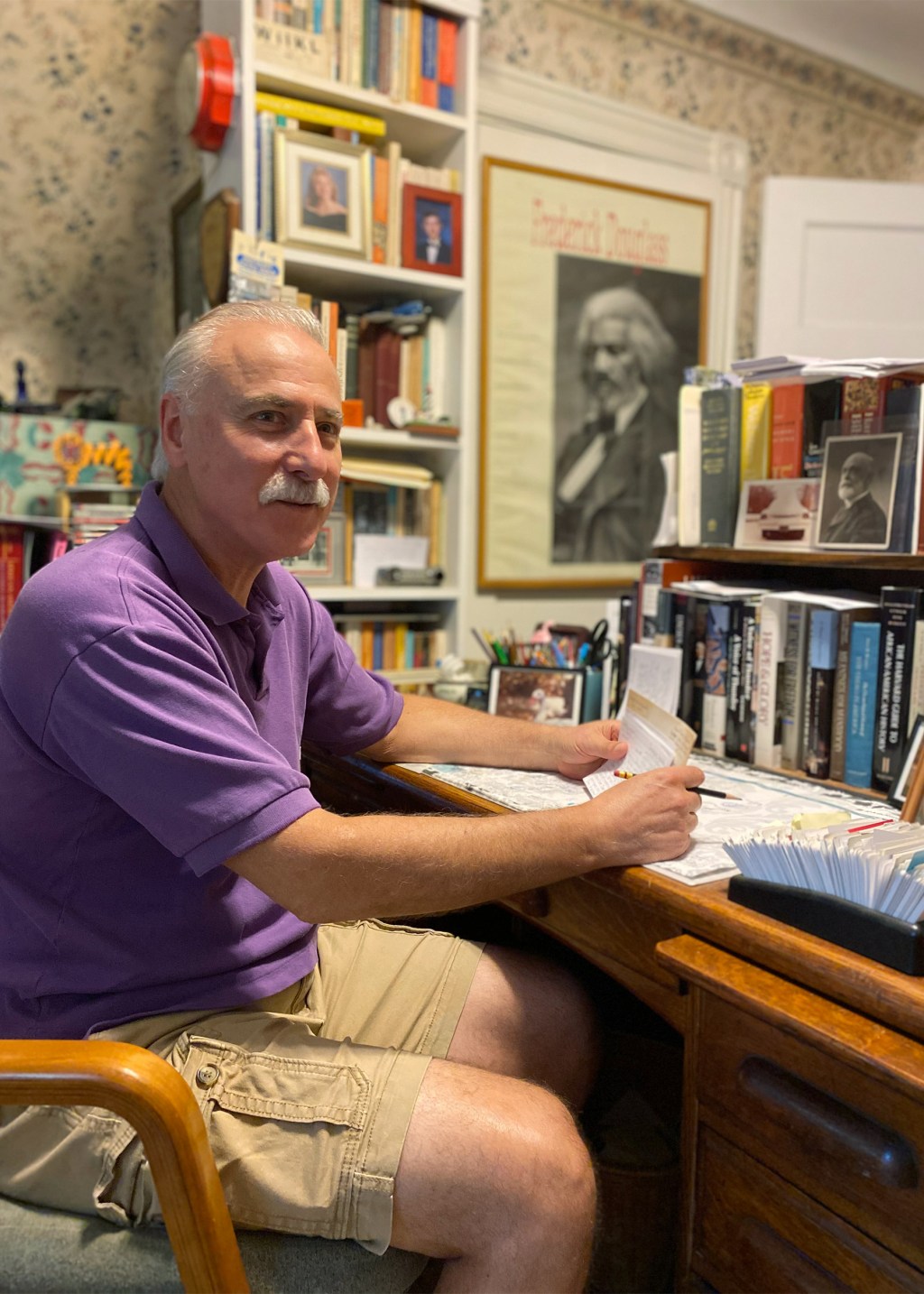
-
Helping teachers and principals confront their own racism
Interview with Sarah Fiarman and Tracey Benson, former school principals and HGSE graduates, who co-wrote “Unconscious Bias in Schools: A Developmental Approach to Exploring Race and Racism” to help teachers and school leaders start conversations about race in schools.
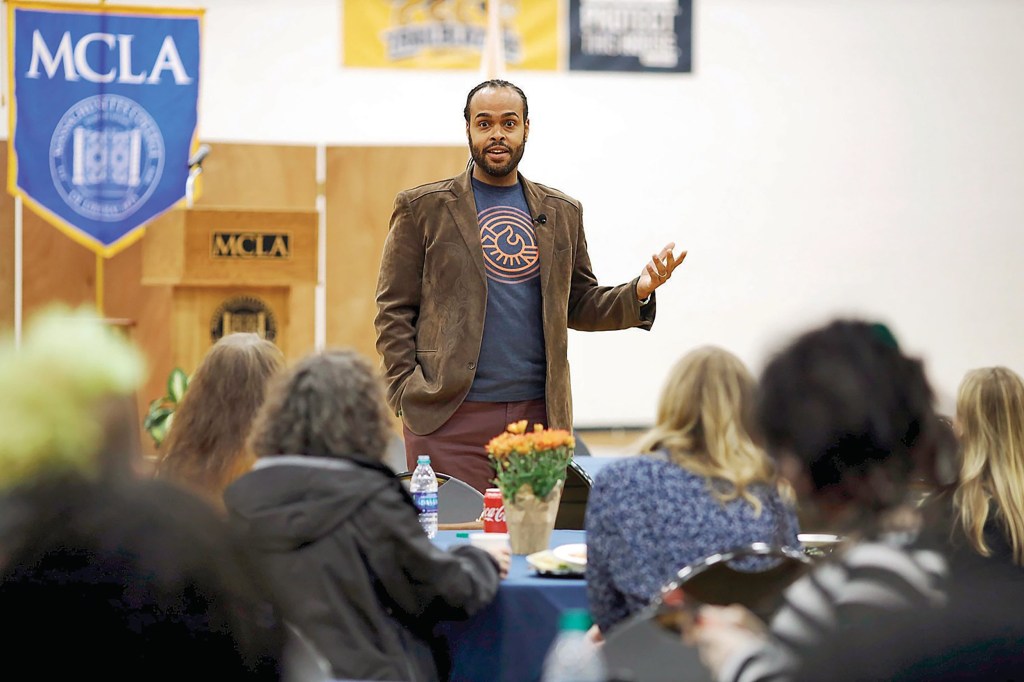
-
Crowd-sourcing the story of a people
Tiya Miles, a professor of history and Radcliffe Alumnae Professor at the Radcliffe Institute for Advanced Study, spoke to the Gazette about the vital role of public history in shaping American cultural understanding.
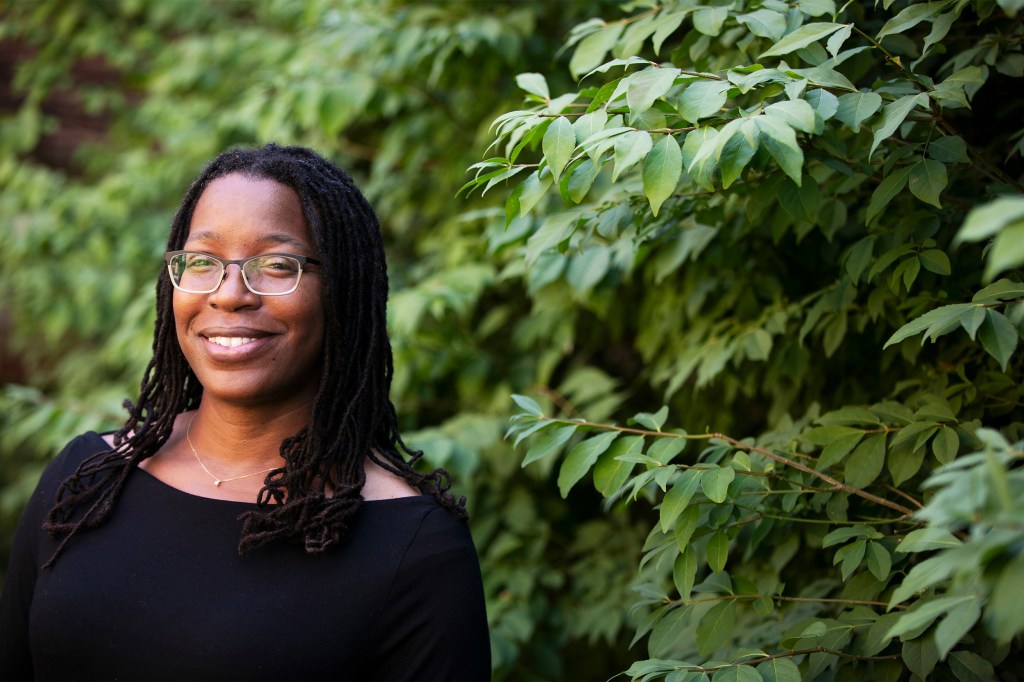
-
Sheree Ohen named first FAS associate dean of diversity, inclusion, and belonging
Sheree Ohen has been named the inaugural associate dean of diversity, inclusion, and belonging for the Faculty of Arts and Sciences, Claudine Gay, Edgerley Family Dean of FAS, announced today. Ohen will begin her tenure Sept. 28.
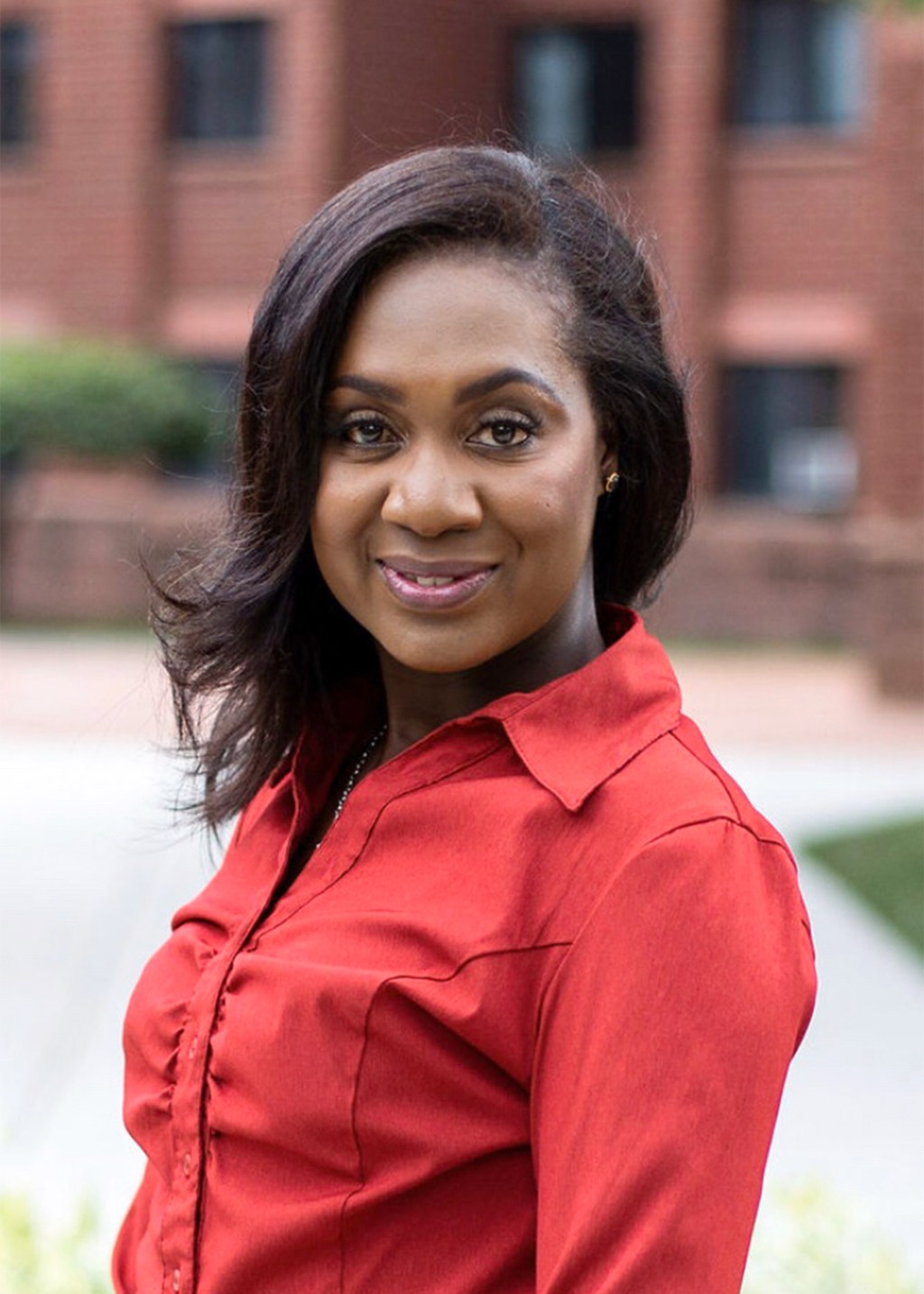
-
Faculty of Arts and Sciences unveils anti-racism agenda
The dean of the Faculty of Arts and Sciences announced an anti-racism agenda prioritizing six areas of action.
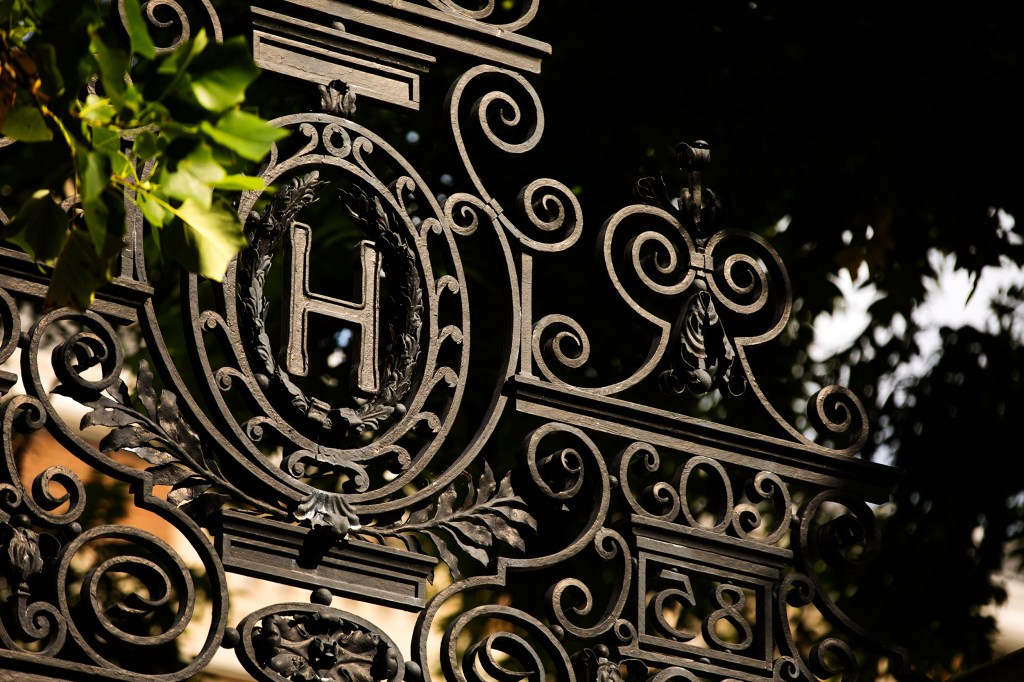
-
His hobby? Making award-winning documentaries
Harvard AV technician Rudy Hypolite spent two years following five young Boston men around with digital cameras to make his documentary “This Ain’t Normal.”
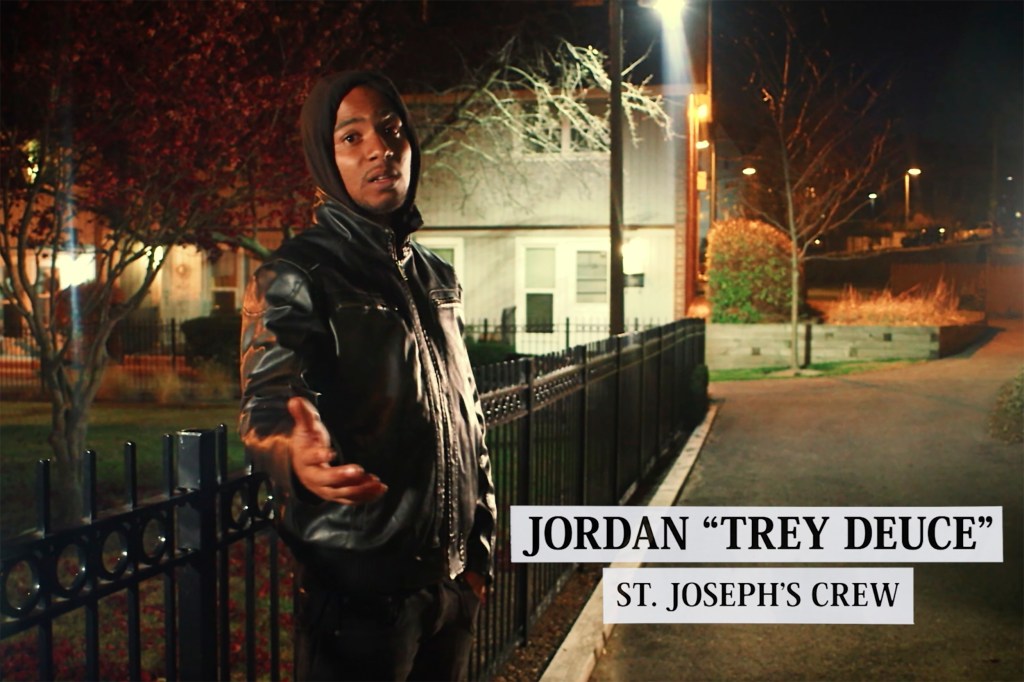
-
The gathering storm
Experts assess the state of the nation amid a pandemic and a national reckoning with race during a talk sponsored by the Hutchins Center for African & African American Research and PBS.
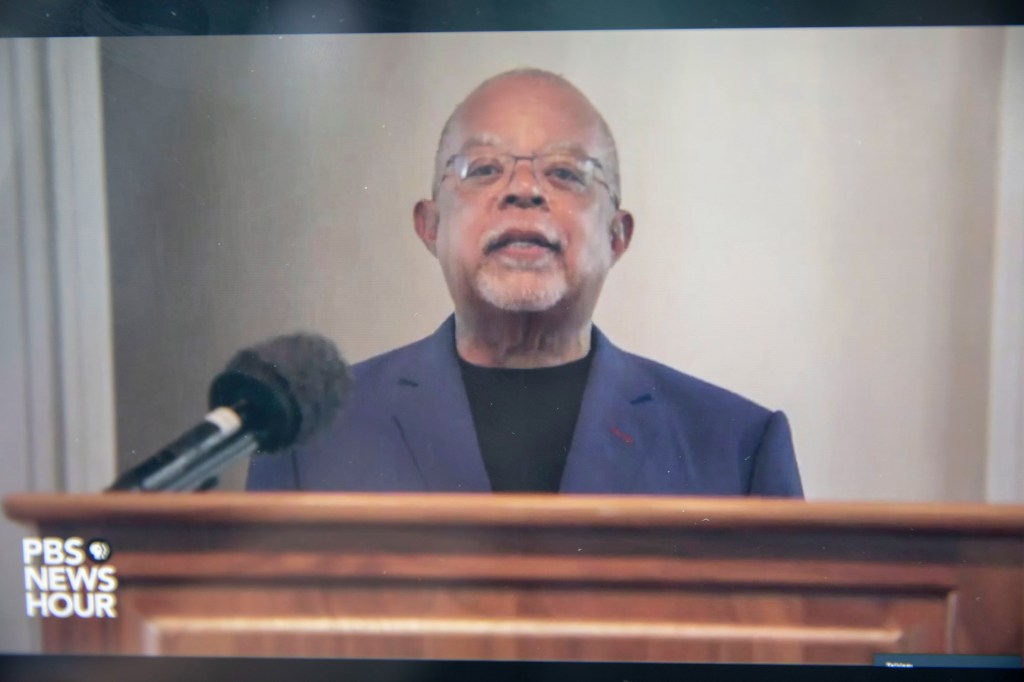
-
Going the distance for himself and a larger purpose
Harvard ornithologist Scott V. Edwards bicycles across the nation, raising awareness of Black Birders Week and Black Lives Matter.
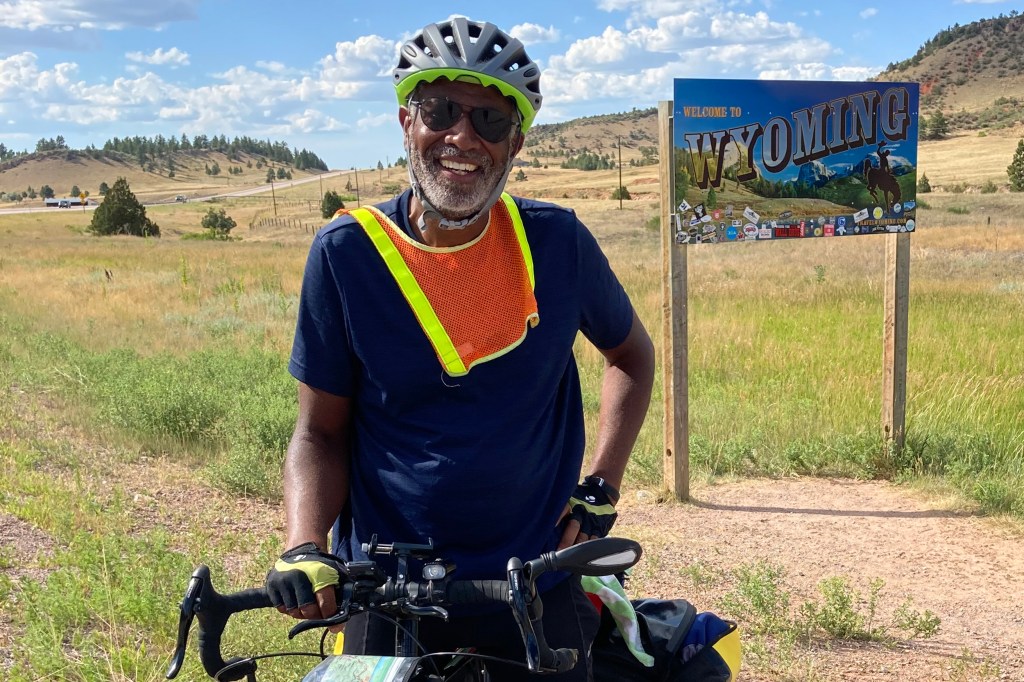
-
This year, a single digitization focus at Houghton
For the 2020‒21 academic year, Houghton will pause all digital projects to focus solely on building a digital collection related to Black American history, building a collection called “Slavery, Abolition, Emancipation, and Freedom.”
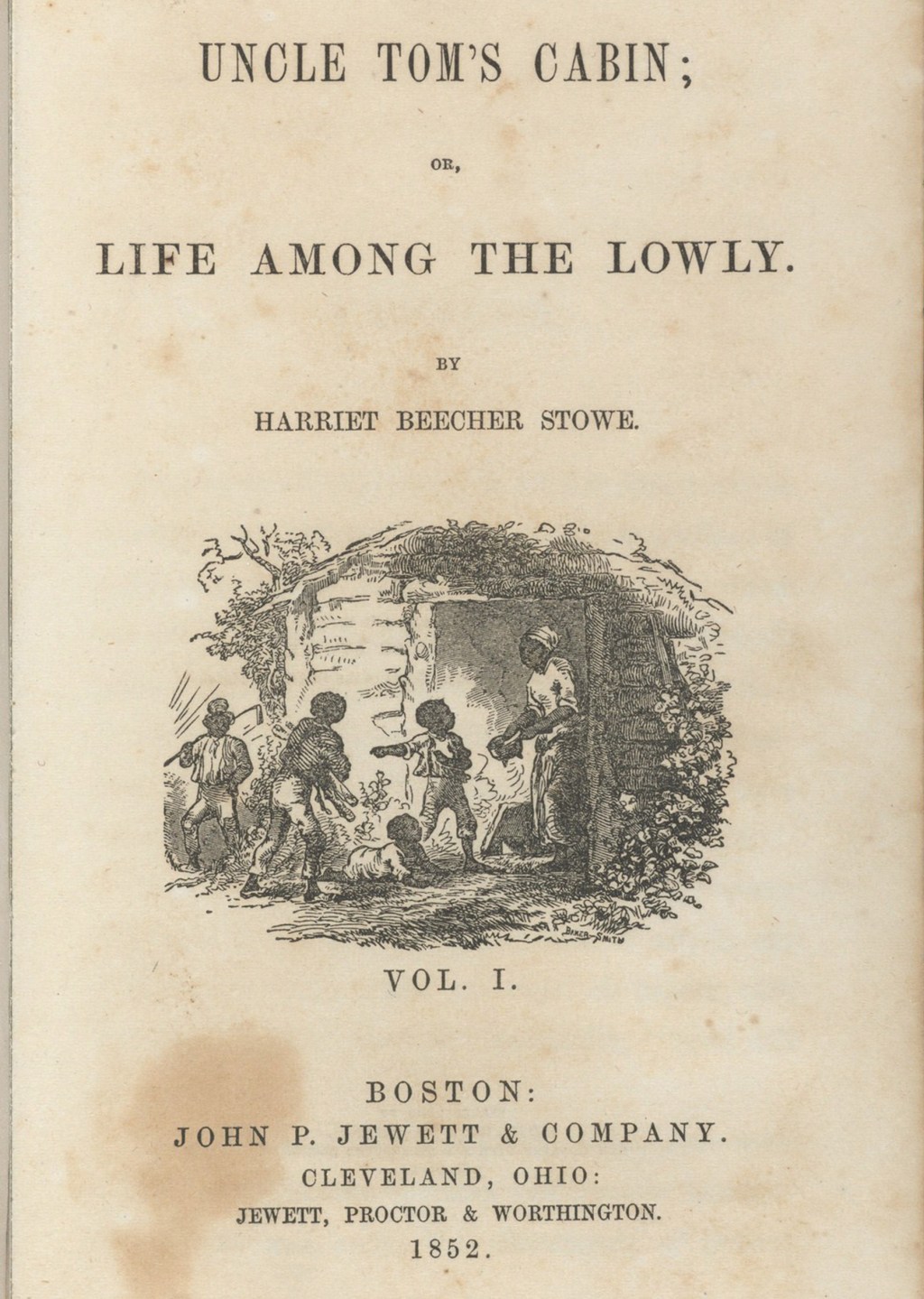
-
Teaching children to be antiracist
Ibram X. Kendi discusses his new book, how to start conversations about racism with children and with adults, and how to dismantle racist policies.
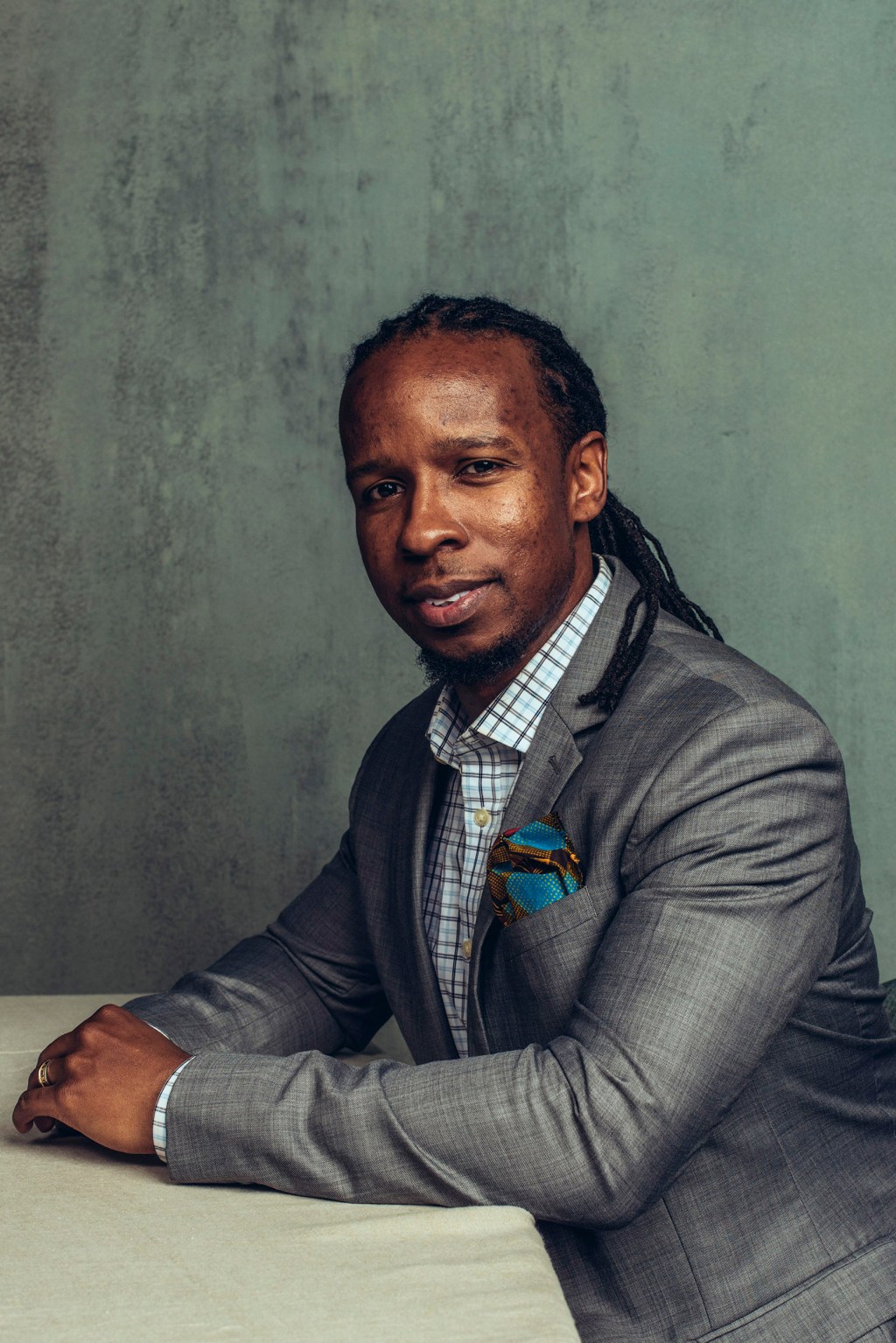
-
Protesting police violence, a playlist
Decades before cellphone video and social media demanded Americans witness police brutality, hip-hop turned a bright light on all of it, and more.
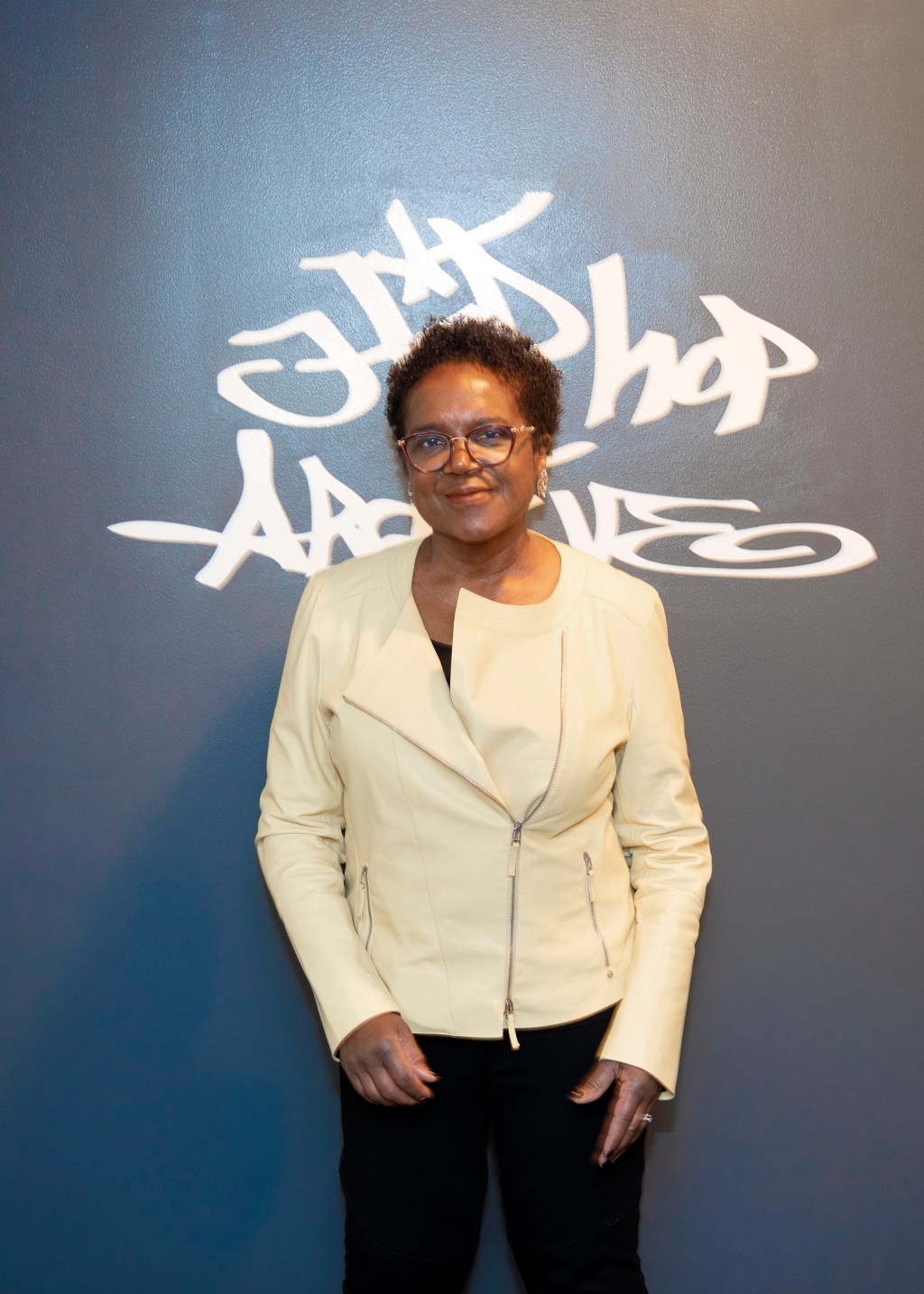
-
Why they protest
Harvard students talk about why they have demonstrated, their experience at protests, and their take on the moment.
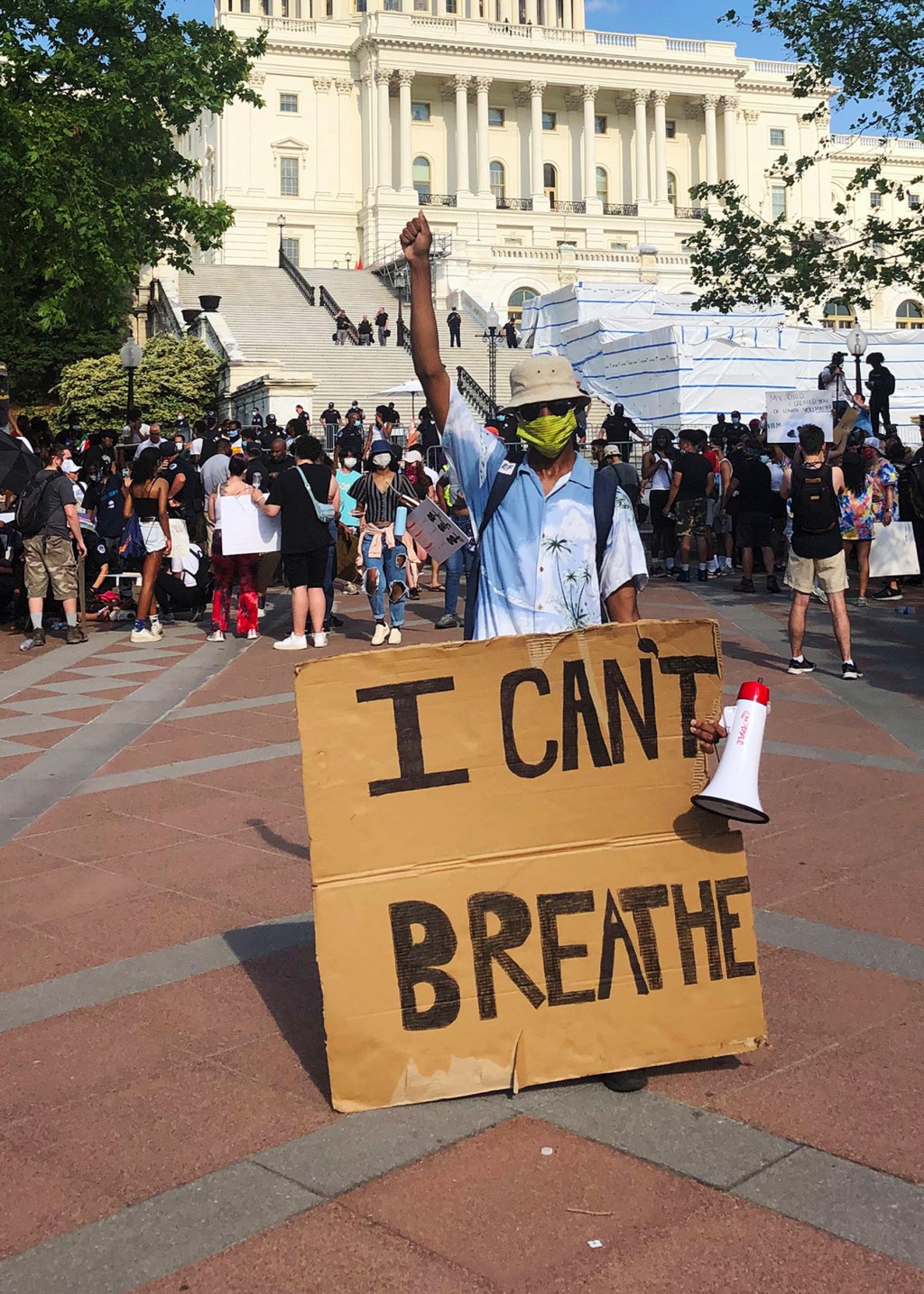
-
‘I was in Harvard but not of it’
The W.E.B. Du Bois Graduate Society is a student organization of the Graduate School of Arts and Sciences that aims to foster community and kinship among minority doctoral students.
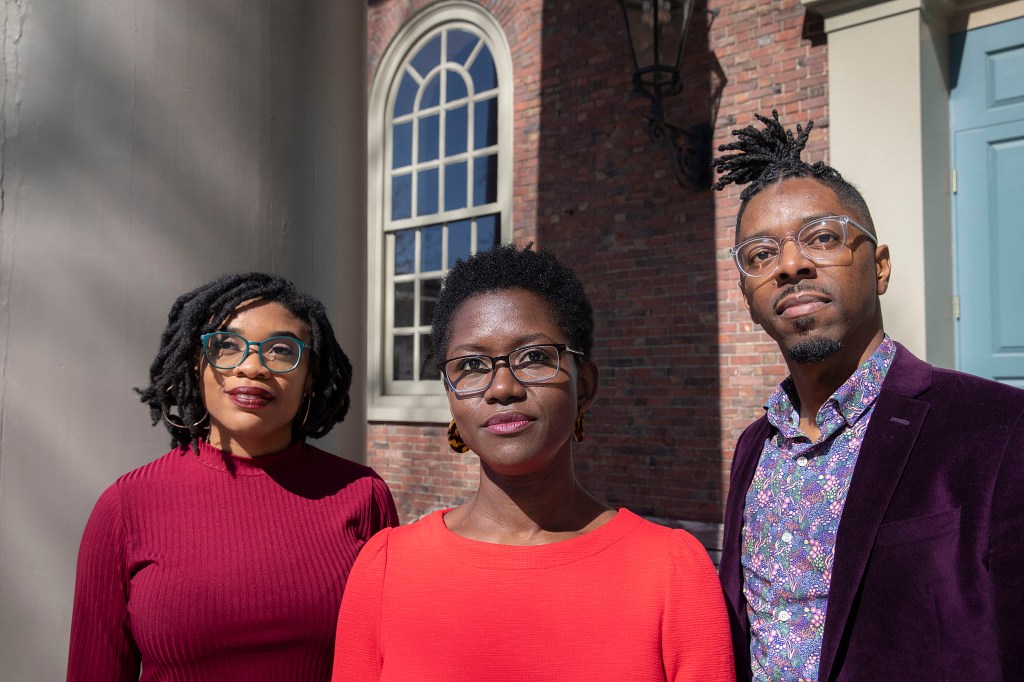
-
Police reform in the spotlight
A panel of experts explores the history of policing in the U.S., and meaningful reform.
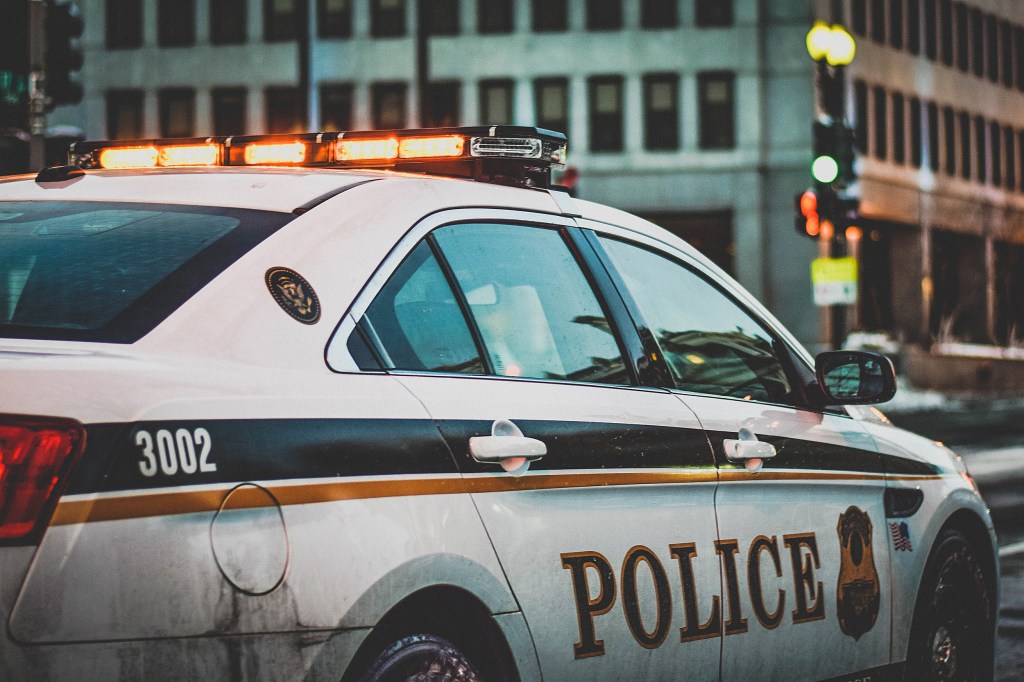
-
Lessons from James Baldwin on betrayal and hope
Princeton’s Eddie Glaude and Harvard Professor Cornel West discuss Glaude’s “Begin Again: James Baldwin’s America and Its Urgent Lessons for Our Own,” and the hope Baldwin saw for change.
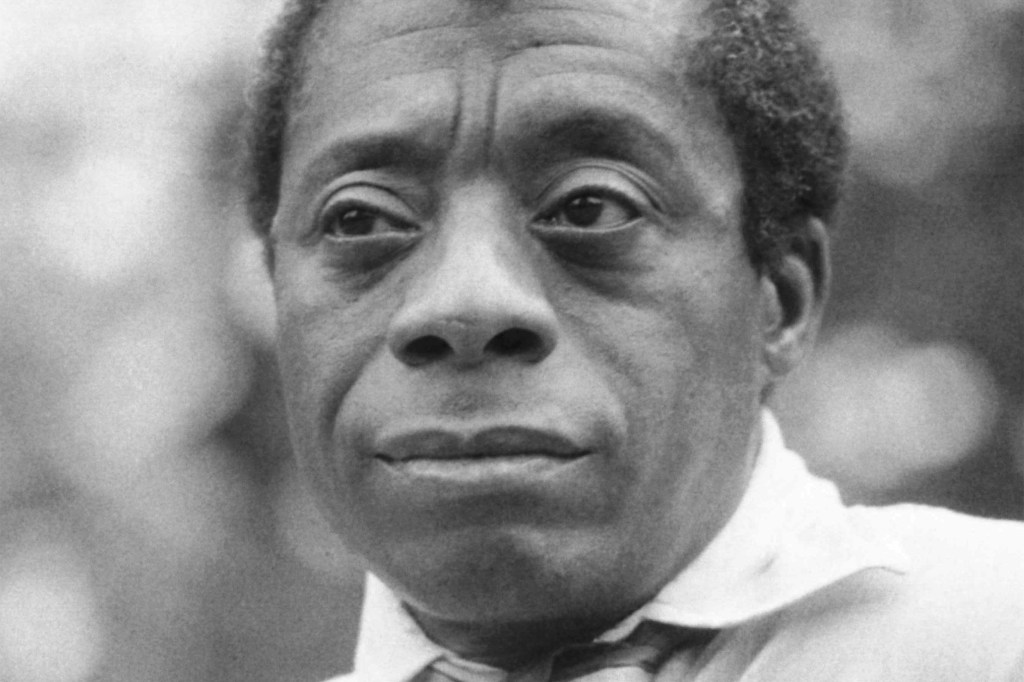
-
‘What to the Slave is the Fourth of July?’
A 4th of July community reading to explore the resonance of Frederick Douglass’ famous speech, reflect on the past, and what comes next.
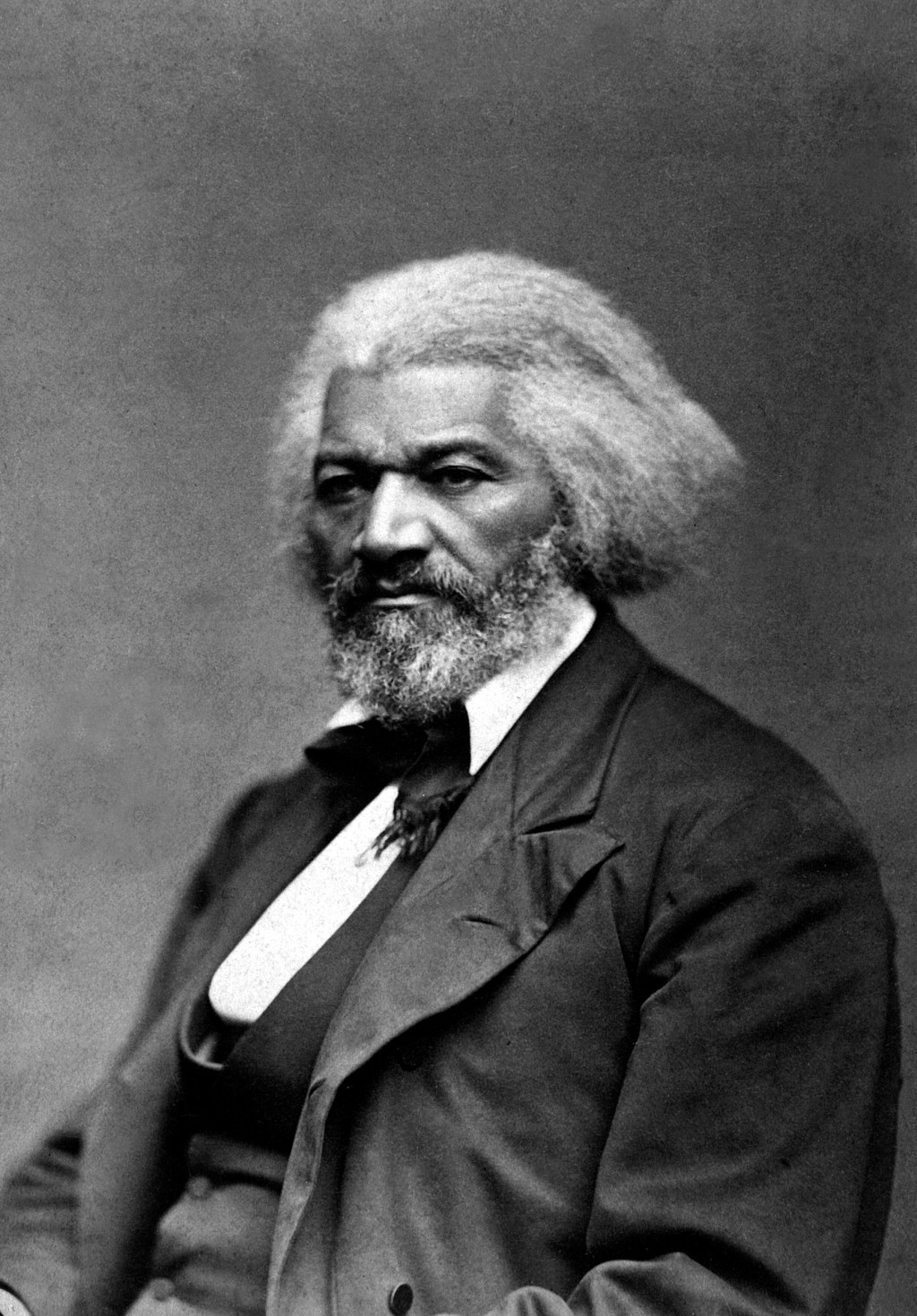
-
Fatal encounters with police
The metaLAB(at)Harvard project gathers the names and stories of 28,000 people who died during police encounters, highlighting racial disparities.

-
Walsh details thinking behind redeployment of police funds
Boston mayor discusses $12 million antiracism public health initiative at Harvard Chan School series.
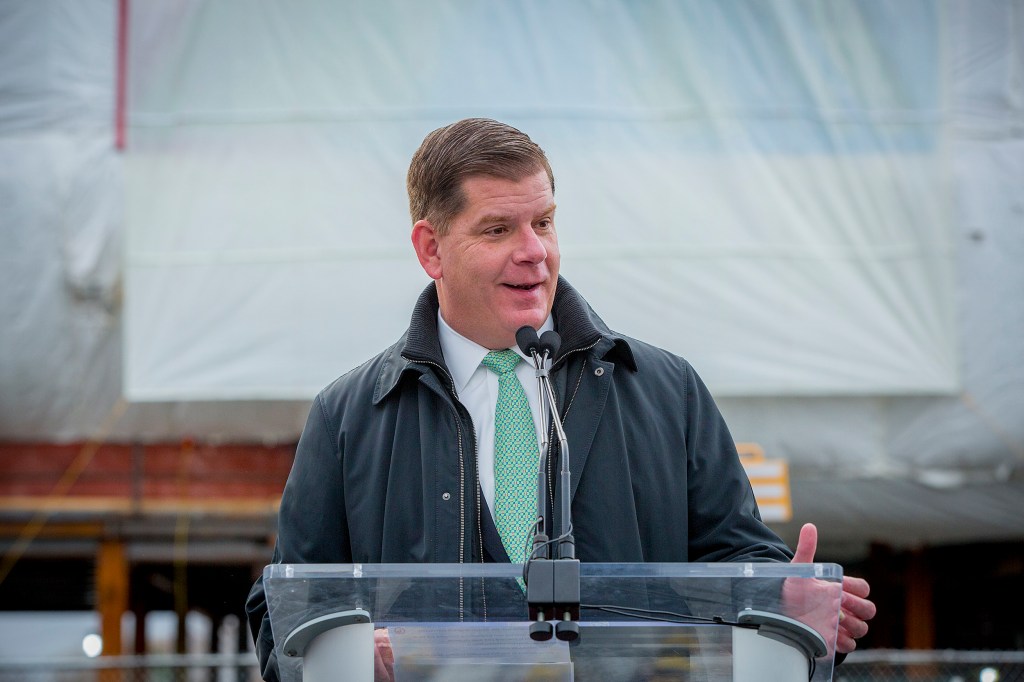
-
Art for justice’s sake
Students activate, donate in movement to fight inequity, promote police reform.
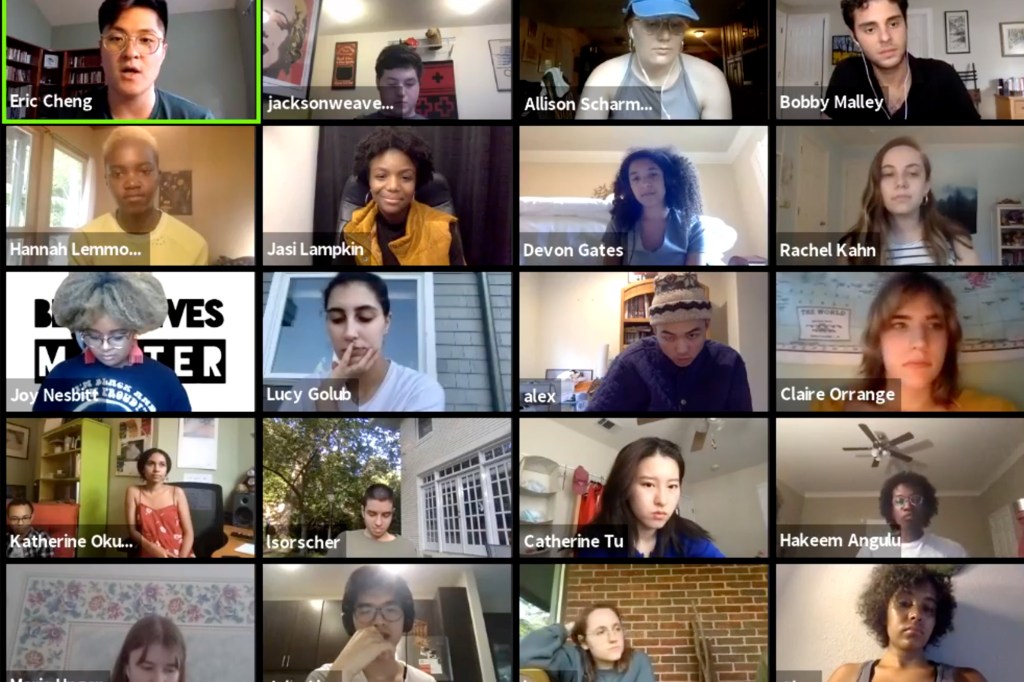
-
House majority whip shares the value of communication
House Majority Whip James Clyburn, the highest-ranking African American in Congress, brought a unique perspective to Harvard for Juneteenth.
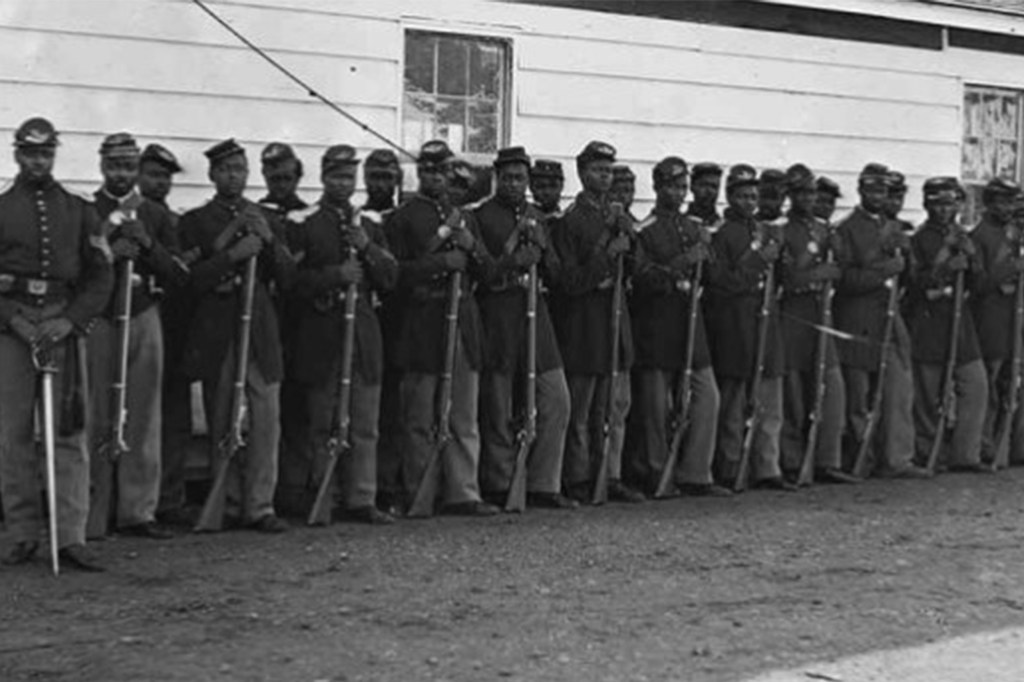
-
Rewriting history — to include all of it this time
“A Conversation on Tulsa and the Long History of Dispossession of African Americans: What We Don’t Know” focused on the race issues dividing the United States — and the possibility that open discussion could move us forward.
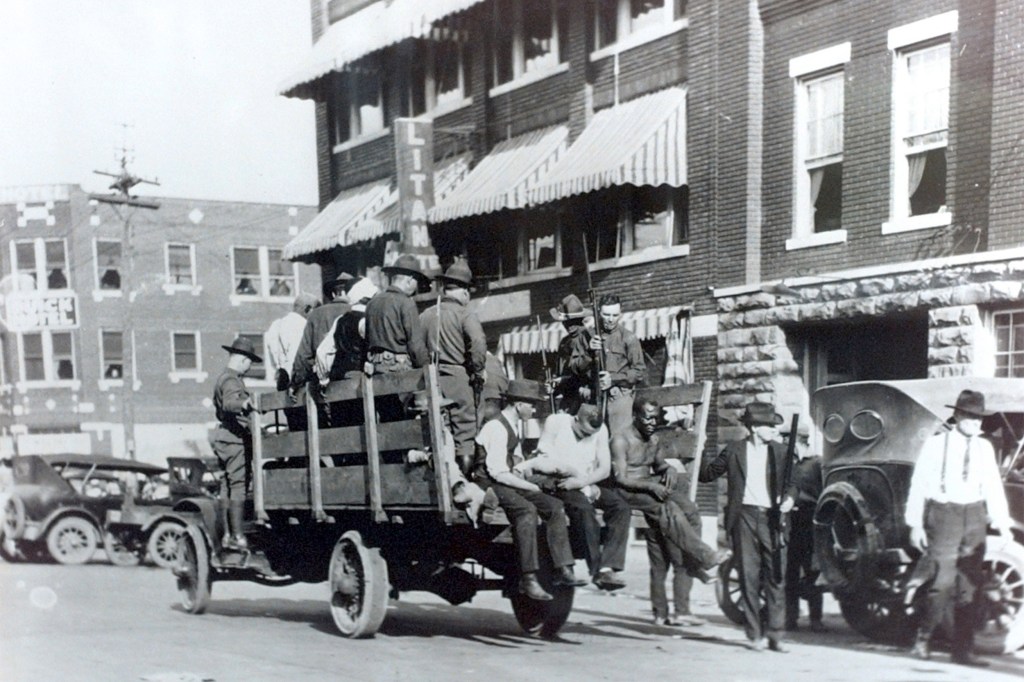
-
Must we allow symbols of racism on public land?
Historian and legal scholar Annette Gordon-Reed explores the controversy surrounding the removal of Confederate statues.
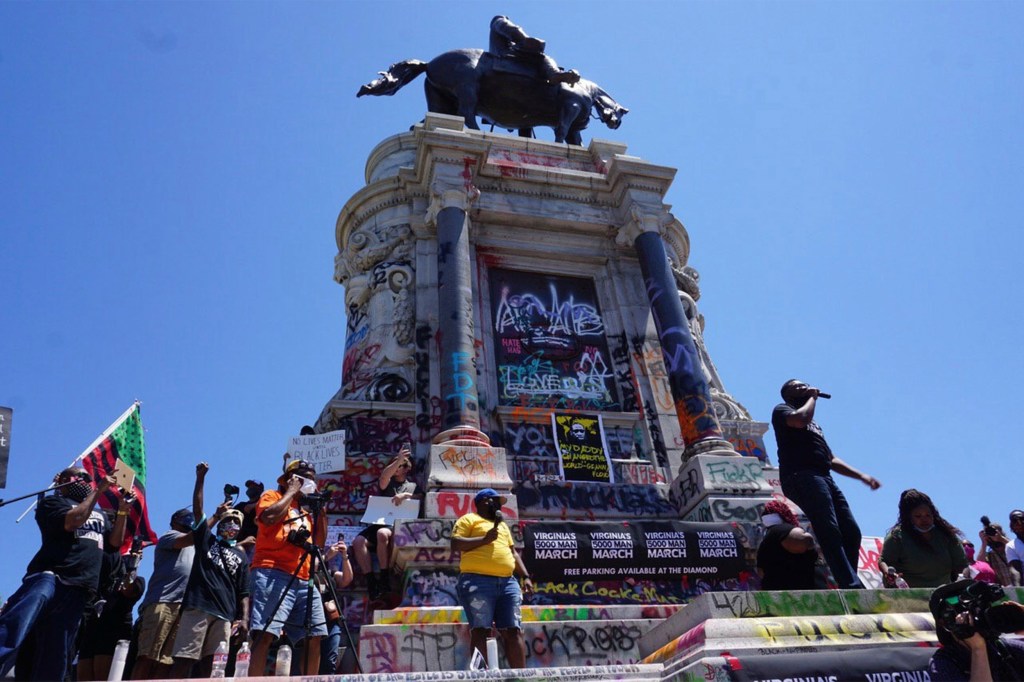
-
The 1921 Tulsa Race Massacre and the financial fallout
Experts look at the long-term financial fallout from a 1921 riot that left an affluent Black community, known as Black Wall Street, destroyed by a white mob numbering in the thousands.
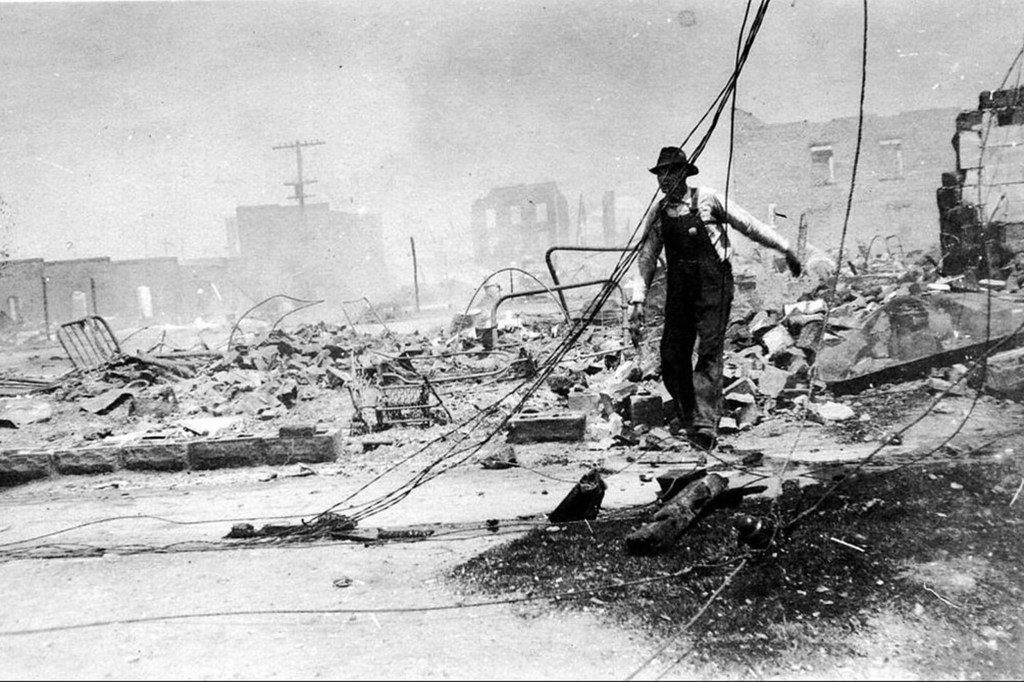
-
Juneteenth in a time of reckoning
Juneteenth commemorates the end of slavery across the nation, when the Union Army took official control of Texas on June 19, 1865, more than two years after the Emancipation Proclamation.
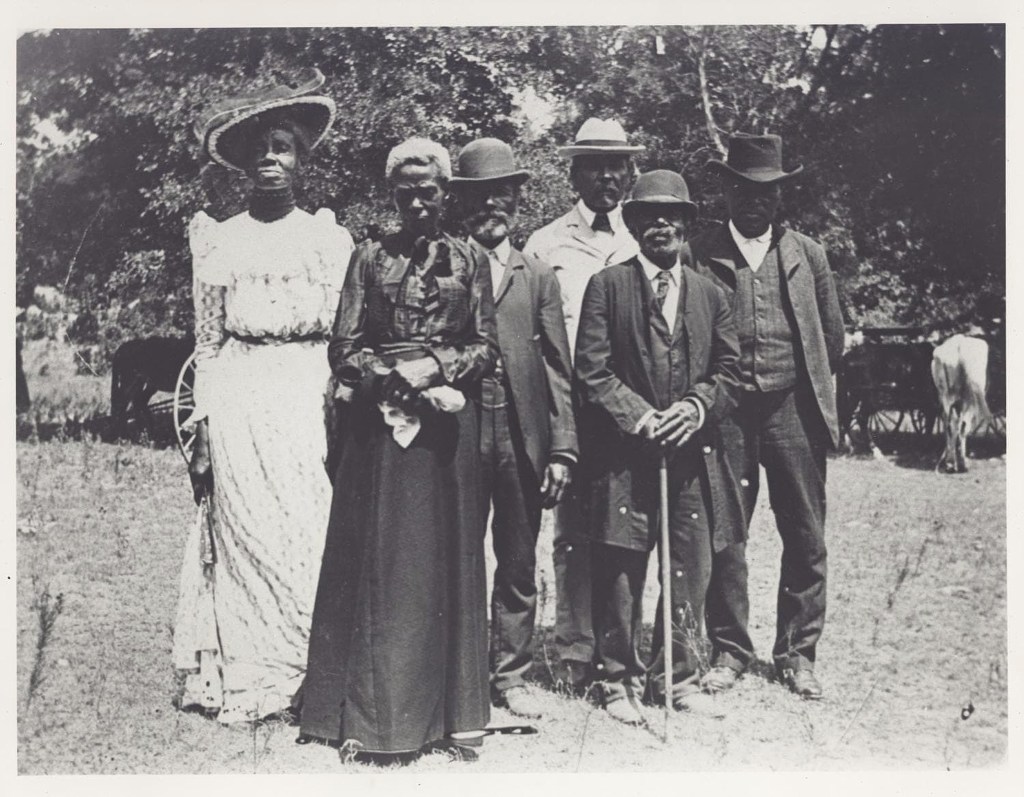
-
A reading list on issues of race
Harvard faculty offer recommendations of books on race everyone should read.

-
STEM takes a knee for reflection and reckoning
Harvard Science takes part in #ShutDownAcademia, #ShutDownSTEM, and #Strike4BlackLives
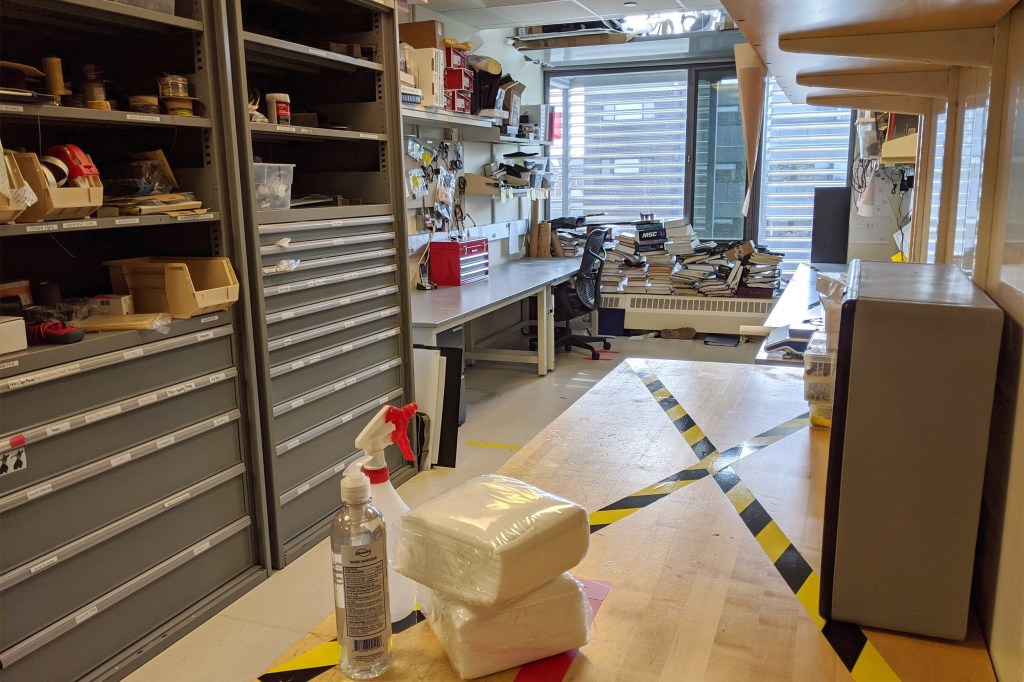
-
After the protest … what next?
As protests condemning police brutality against African Americans and systemic racism in the U.S. continue, Harvard faculty share their views on what they’d like to see happen next.
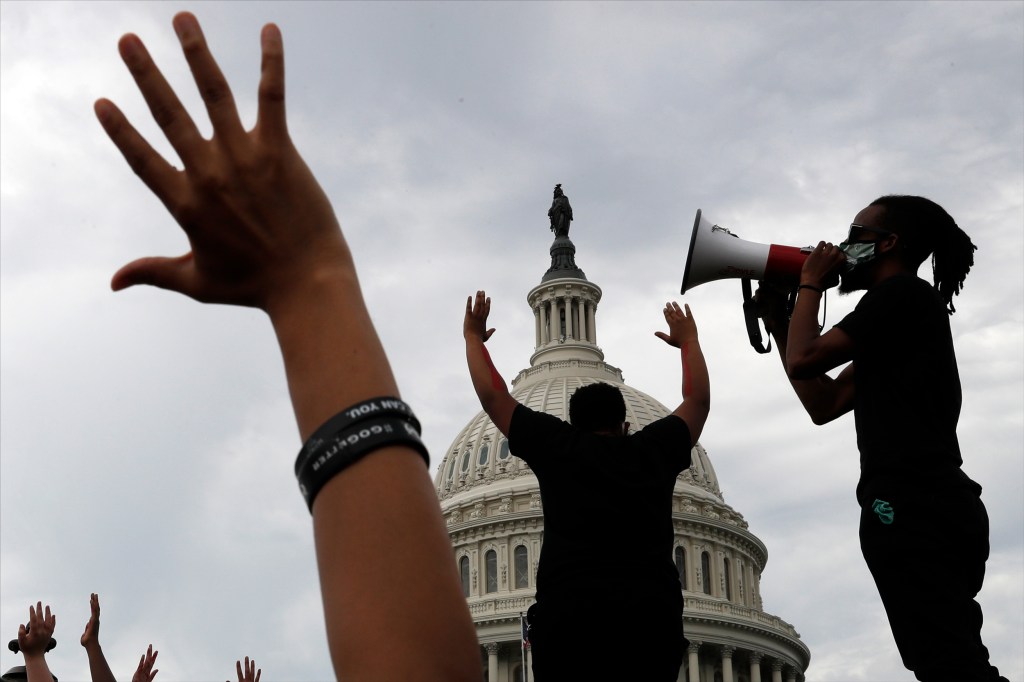
-
How Black protest may be key to finally ending racial violence
An Ash Center panel probes the history of entrenched violent racism in America from its roots to its current manifestation.
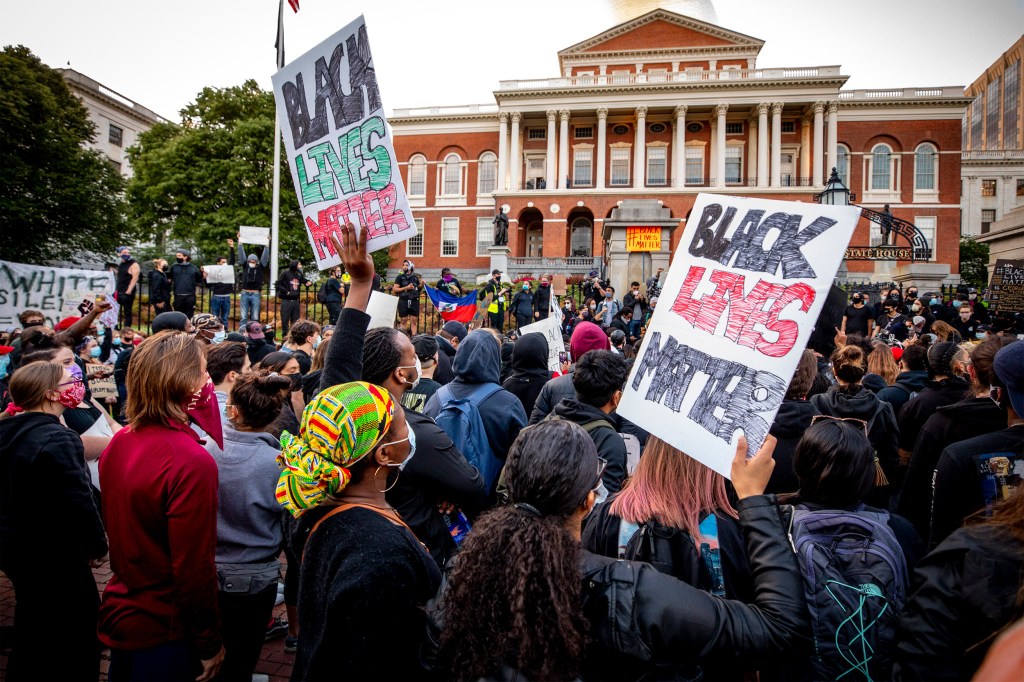
-
Waiting for someone else to speak out
Francesca Gino at Harvard Business School discusses how toxic cultures can flourish within police departments and other organizations.
